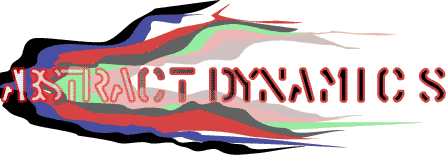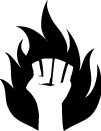January 27, 2003
The Ruralization of the Internet
Adam at V-2 points out several graphics that amply illustrate the socio-geographic divide that underpins the internet. The first is an excellent interactive graphic showing the distribution of blogs around the world. The result is remarkably predictable. The usual suspect of Europe, America and whiter of the English Commonwealth countries lead the pack, with Japan also showing up respectably. Mainland Asia and the Southern Hemisphere? Barely there. The second graphic, a map of all the wi-fi spots in Manhattan shows the same digital divide reoccurring fractal like on a smaller scale. Harlem and points north are poorly represented, while the far wealthier areas of the southern half of the island are virtually blanketed with points. The very scary exception is the chunk of downtown comprised almost entirely of government buildings, which appears to be wi-fi free...
Now the digital divide is a well known phenomena, all be it one that still hasn't been solved. I'm more interested in the distribution of people and information on the internet itself. And what's worries me about those distributions is that they have very strong magnifying potential. That on the internet itself we will find a distribution of power, where certain social groups will find themselves in privileged places that allow for a consolidation of power.
I only have anecdotal evidence of the stratification of the internet, but its enough to be worrying. There are only a few strong social structures on the web: mailing lists, bulletin boards and their cousin the usenet, chat rooms, and linkrings are the ones I can think of offhand.
These communities often start out completely open, anyone can post or join in, provided of course they can find the place. But as these communities grow in prominence they begin to attract unruly members. Spammers and trolls are the most notorious problems. At the same time the shear effects of growth often hurt the community. Signal to noise ratios worsen, or the volume of the noise just gets loud enough to be annoying. The shear number of posts can discourage participation, and the new members often repeat old conversations at the annoyance of the old guard. The result is a need to regulate the community.
There are a handful of techniques of regulation. Slashdot and Kuro5hin style user moderation are among the most democratic. Often only a few individuals are allowed to moderate. But moderation is an intensive job, often its easier to just close the gates. Some sites like the late Dreamless hide their entrance so only those in the know can get access. Others like the Pho list require members to apply for entry. The most exclusive like John Brockman's Edge list are invitation only, a secret society for the information age. Linkrings like those found in the blogger community, are an organic form of invitation only. Bloggers tend to post links to other bloggers they like. Follow these links and you'll quickly wind up back at your starting point. These links tend to reinforce each other, strengthening the positions of the most prominent bloggers, while pushing others to the sidelines.
None of this is a huge surprise. It mirrors the processes found in governments, religions, secret societies and businesses. Like minded people tend to seek each others company and find that keeping others out increases the level of conversation. And often increases their power as well. The internet just makes this process fast and global. If news aggregators and the like represent a suburbanization of the internet, then this is a far older process, a tribalization, or ruralization of the internet.
Each social group is a remarkably isolated information bubble. It might have some established trading routes with other groups with similar interests, but thats about it. The nettime list for instance is limited to discussions of the social implications of technology with a dose of politics and art. Posts from the rhizome net art list, or the futurefeedforward scifi satire list are sometimes brought into the mix by certain trader individuals. But the subjects are well defined, and as insular as an isolated agricultural village. And since these groups often serve as news sources for members, they restrict the diversity of information even more then news aggregators can.
When power is thrown into the mix the result is stratification. A closed group with many powerful members serves to consolidate power. They have an excellent means of communication and sharing information. A group with a few powerful members and other less powerful ones can work as a funnel, bringing members into more prominent positions. And groups without much power? They just get locked out.
Combine this effect with the already existing digital divide and the result is amplification. For all the talk of internet revolution and how it evens the playing field its just not true. Sure there are opportunities for new groups to seize power, new ways for oppositions to organize. But like all revolutions the promises of power for everyone rapidly seem to be shifting towards power to a new group of people. The more things change...



